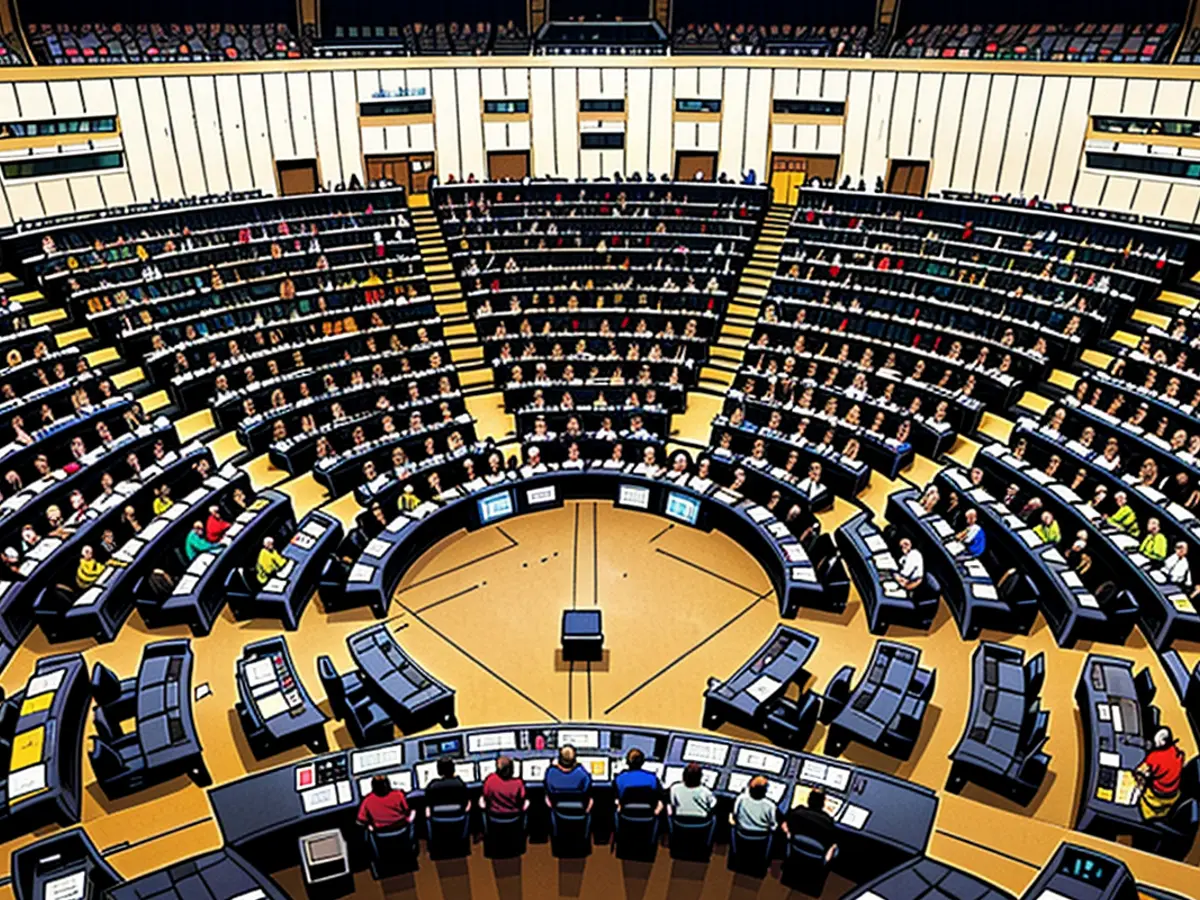AfD finds like-minded people for EU parliamentary group
The AfD representatives in the European Parliament will continue to belong to a faction with representatives from eight other countries in the coming years. However, the overall 28 AfD representatives in the Parliament may stand in the shadow of another right-wing faction.
The AfD delegation in the new European Parliament has reportedly decided to found a common faction with other right-wing parties in the Parliament. A spokesperson for party leader Alice Weidel confirmed this. The faction should reportedly have 28 members from nine countries - 14 of them from the AfD. Maximilian Krah, whom the delegation had excluded from their ranks after the European election, sits among the 15 AfD representatives in the new EU Parliament but should not be part of the new faction, according to the report.
For a faction formation in the European Parliament, 23 members from seven member states are required. The AfD reportedly proposes the name "European Sovereign Nations" (ESN) for the new partners. René Aust, the Thuringian AfD MP, is expected to be the faction leader. The formation of the faction is expected to be officially announced on a Wednesday evening. Negotiations are still ongoing regarding the positions of the deputy chairpersons.
Prospective partners in the alliance are reportedly Reconquête from France, Confederacja from Poland, Vazrasdane (Revival) from Bulgaria, Se Acabó La Fiesta from Spain, SPD from the Czech Republic, Republika from Slovakia, Mi Hazánk Mozgalom from Hungary, and the People and Justice Union from Lithuania. It is said that successful talks have taken place regarding cooperation with all the prospective new partners.
"The AfD will keep the faction open for other delegations that want to join," Weidel's spokesperson said.
Tomio Okamura, chairman of the Czech ultra-right party Freedom and Direct Democracy (SPD), confirmed plans for a joint faction formation with the AfD. "The program of the faction is against the Green Deal, migration, and the Islamization of Europe," Okamura said, according to the CTK agency. The SPD is represented by only one MP in the new EU Parliament. The nationalist Republic from Slovakia secured two seats in the European election.
In the shadow of the other right-wing faction
The new faction must operate in the shadow of the large right-wing faction named "Patriots for Europe" in the Parliamentary proceedings of the coming years. In this faction, the heavyweights of European right-wing politics have come together: Participating parties include the Rassemblement National of France, the Lega of Italy, the FPO of Austria, and Viktor Orbán's Fidesz from Hungary. This faction claims to have 84 MPs from twelve countries and will be the third strongest force in the Parliament behind Social Democrats and the Center-Right Alliance EVP, which includes the CDU and CSU.
The AfD was left out of this alliance, despite their self-proclaimed shared content with the participating parties. The reasons remain unclear. AfD leader Weidel had said that the partners in this alliance are subject to "political and also external political and economic pressures, which we currently have to take into account." In the AfD leadership, it is believed that, for example, the German government could prevent Orban, in his role as Hungarian prime minister, from cooperating with the AfD.
The formation of the new faction, named "European Sovereign Nations" (ESN), with 28 members from nine countries, including the AfD, is expected to operate in the shadow of the larger right-wing faction "Patriots for Europe" in the European Parliament. Despite the AfD sharing similar content with the participating parties of "Patriots for Europe," they were left out of the alliance, potentially due to external political and economic pressures from the German government affecting Hungarian Prime Minister Viktor Orbán's cooperation with the AfD.








